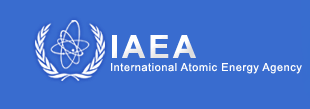Speaker
Mr
Sergey Konovalov
(Russian Federation)
Description
Principal goal of the ITER disruption mitigation system (DMS) is retention of the heat and electro-mechanical loads on the machine components during disruption within the tolerable limits. This includes heat loads on divertor and plasma facing components during thermal quench (TQ), electromagnetic forces on vacuum vessel and other constructive elements during current quench (CQ) and heat loads due to the loss of runaway electron (RE) beam to the wall.
Capabilities of the Be pellet injection to meet the goals of the ITER DMS are studied in the present report using the set of numerical codes providing integrated simulation of ITER disruptions with RE generation.
Simulations of the TQ with ASTRA code demonstrated a principle possibility of re-radiation of more than 80% of plasma thermal energy with injection of about 2*1023 Be atoms. Subsequent simulation of the CQ with DINA code showed that the duration of CQ is close to, but exceeds the engineering limit of 36ms, especially in the case of most probable Upward vertical displacement events (VDE).
The RE generation in the plasma with Be impurity was found to be strongly suppressed. However, at the CQ stage of simulations it was found that even very small RE seed current of about 100A would be sufficient to convert up to the half of the pre-disruption plasma current into RE one. Maximum electromagnetic forces on the VV of order of 100MN were found in DINA simulations of the Downward VDE with RE.
Possibilities of the mitigation of the RE current and energy by means of the Be pellet injection at the CQ stage are discussed.
Country or International Organization of Primary Author
Russian Federation
Author
Mr
Sergey Konovalov
(Russian Federation)
Co-authors
Dr
Andrey Kavin
(Efremov Institute of Electrophysical Apparatus)
Mr
Pavel Aleynikov
(NRC "Kurchatov institute")
Dr
Rustam Khayrutdinov
(RF SRC TRINITI)
Dr
Sergei Putvinski
(ITER IO)
Dr
Sergey Medvedev
(NRC "Kurchatov institute")
Dr
Victor Lukash
(NRC "Kurchatov institute")
Dr
Victor Zhogolev
(NRC "Kurchatov institute")
Dr
Vladimir Leonov
(NRC "Kurchatov institute")

